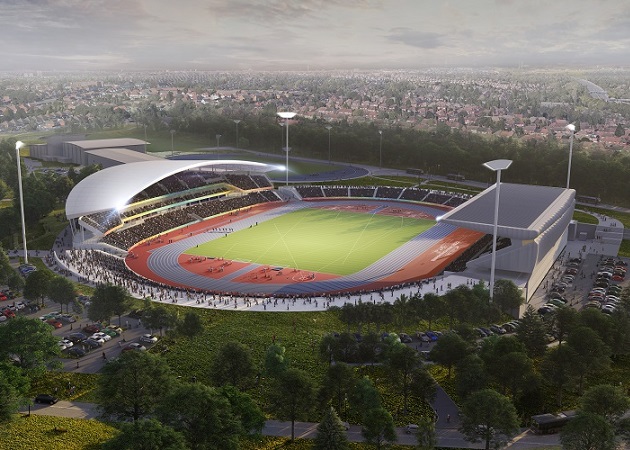Council finalises details of £6million Commonwealth Games Community Fund
 Published: 8th Mar 2021
Published: 8th Mar 2021
Plans to utilise the final third of Birmingham City Council’s £6million Commonwealth Games Community Fund are due before the council’s Cabinet on 16 March.
Under the proposals, the £2million would be invested across three thematic areas:
- Stronger Communities;
- The Commonwealth Games Learning Programme;
- Physical Activity and Wellbeing.
Last year the remaining £4million of the Community Fund was split equally between Creative Communities (focussing on cultural activity) and Celebrating Communities (a project which will see all 69 council wards receive a slice of funding to enable people to embrace the Games at a grassroots level).
The thematic areas detailed in the March 16 Cabinet report are as follows:
Stronger Communities (£0.5million)
This strand is designed to provide a mechanism for Birmingham citizens to offer constructive challenge, advice and feedback to all Games Legacy workstreams through the creation of a community stakeholder panel, ensuring that tackling inequality is the cross-cutting thread that runs through all Games-related activity the council is involved in.
In addition, the proposed funding will enable the council to work with communities in the city to design and deliver projects falling under three themes – Inclusive City, Connected City and Know Your City – all taking into account learning and feedback from the city’s recent Community Cohesion consultation as well as learning from communities throughout the COVID pandemic.
Physical Activity and Wellbeing (£1million)
A region-wide programme of funding to support physical activity and wellbeing activity is being created as part of the work by Games Partners to secure a legacy from the Commonwealth Games, but the proposed Physical Activity and Wellbeing strand of the council’s community fund gives the opportunity to focus on Birmingham specific activity, enhancing some existing projects that are already underway in the city and to maximise engagement opportunities for residents across the city.
Commonwealth Games Learning Programme (£0.5million)
The Games Learning Programme is set to be delivered by the Birmingham 2022 Organising Committee (OC), with the city council involved in key elements of programme design. The £0.5million will be supplied to the OC to support an additional Birmingham-specific targeted strand of activity to ensure young people in every ward of the city have access to at least one Games opportunity either through schools or community participation. This strand is in addition to what will be available at regional and national level.
The aim of the £0.5million investment is to create direct opportunities for at least 100,000 children and young people in Birmingham, working with at least 72 schools across the city as well as a variety of the networks of youth clubs/groups, community partners, sport and cultural organisations and local groups for whom the programme will be widely accessible. Connecting with communities in every council ward, this will be in addition to the core offer of the Learning Programme.
Cllr Ian Ward, Leader of Birmingham City Council, said: “These exciting plans underline how being a Proud Host City can help Birmingham become an even greater place in which to live, work and grow.
“We cannot wait to offer a warm welcome to the athletes and officials from 72 competing nations and territories next summer, but the Games are about much more than that for the people of this city.
“Through this funding, we aim to bring our communities together, to improve health and wellbeing, reduce inequalities and to inspire our young people.”
Background notes
As detailed in the March 16 Cabinet report, the aims of the city council’s £6million Commonwealth Games Community Fund are to:
- Create a legacy of civic engagement and pride within Birmingham’s residents
- Inspire children and young people to be ambitious and achieve their full potential
- Improve the health and wellbeing of Birmingham residents
- Reduce social isolation, loneliness and develop active citizenship
- Reduce inequalities and build a fair, tolerant and inclusive city for all
